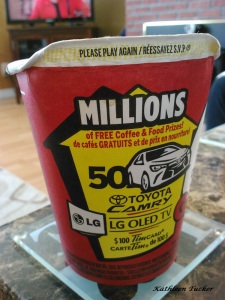It never occurred to me when I hurried through the library doors that the myth of Pandora’s Box could be anything but a myth, but as sure as the legend of Pandora exists, what happened at the Edmonton library surprised me—especially me—even if I am from the city.
According to Greek myth, Pandora was the first mortal woman. One day, she was given a small box as a gift from the Greek Gods—as a wedding gift—but was told never to open it. However, Pandora’s curiosity got the better of her and she succumbed to temptation. She was horrified when all the evils of the world—hate, anger, sickness, poverty, and every bad thing you could imagine—flew out of the box. Realizing her mistake, she shut the box before Hope, the final endowment, was released.
*****
I enjoy the library and everything it represents: it’s a place for study and research, with codes of etiquette that people are expected to obey, such as preserving a serene environment within its walls.
At the St. Anthony town library, I can walk in, greet the lady behind the counter, and search the shelves for books and movies, often becoming so absorbed that I overlook anything else happening around me. But I can’t say the same for the Edmonton library, which is a beehive of activity with people of all ages passing through its doors at all times of the day. So, with that in mind, I waited at the library door at opening time, thinking surely that most of the patrons would scramble for the computers, which they did. My idea was to get to the DVDs, choose one or two, and skedaddle before anyone else moved in.
The DVD section is downstairs, with movies neatly cataloged on shelves, divided into sections and running more than half the length of the library, with hundreds of DVDs to choose from.
But, just as I began to sort through one particular section, unbeknownst to me, the lid of Pandora’s Box was creaking open.
I heard her before I saw her. Her approach was not unlike the approach of a thundercloud passing in front of the sun, or like the chill one feels when a cellar door opens. A death-rattle cough and loud sniffles broke the silence as she rounded the corner. I flinched as she moved right towards the Classics section of DVDs where I stood. Without a by-your-leave, she muscled her way in and stood shoulder-to-shoulder with me, and then started pulling handfuls of movies off the shelves and looking them over. Annoyed, I looked pointedly at her and said, “There are plenty of DVD movies on all the other shelves.”
Judging from her height and weight, she might have grabbed me and shelved me with the same force she was demonstrating with the DVDs, but I hadn’t finished looking through that particular section, and I decided to stand my ground.
“I’m sick!” she barked, obviously assuming the best defense was an offence.
“Then you should be home in bed,” I suggested, still attempting to search the movies.
She grabbed another handful of DVDs and shuffled through them like a card shark. “I can’t lie in bed all weekend without some movies!” she hurled at me between coughs and sniffles.
“But I’m looking through this section,” I argued, “Why don’t you try that section over there,” pointing to long rows of DVDs stretching all the way to the end of the wall.
“You’re rude!” she shrilled loudly, “This isn’t some grocery store line-up, you know! I don’t have to wait my turn!”
“Can’t you wait just five minutes while I choose my DVDs?” I challenged, noting that a male librarian, shelving books a little further down, was retreating to a safer distance.
“You’re not polite!” she cried, jabbing a finger in my direction. The force of her voice notched up the lid on this particular Pandora’s Box of accusations.
I pulled out Jane Austen’s Emma and Mansfield Park, clasping them to my chest like armor and delivered my final argument. “So, even though I was here first, and asked you to kindly wait, I’m supposed to step aside and let you take over, is that it?”
She was summoning another breath to deliver her final tirade—very likely chock-full of spite, not to mention spit—as I brushed past her and the male librarian–and hurried up the stairs and out of the library.
*****
If Hope was the only thing that remained when Pandora snapped the lid shut on the box— then my dearest hope is that I never meet that woman again!
*****
You can take the girl out of the city but, when it comes to standing your ground at the library, you can’t always take the city out of the girl.





